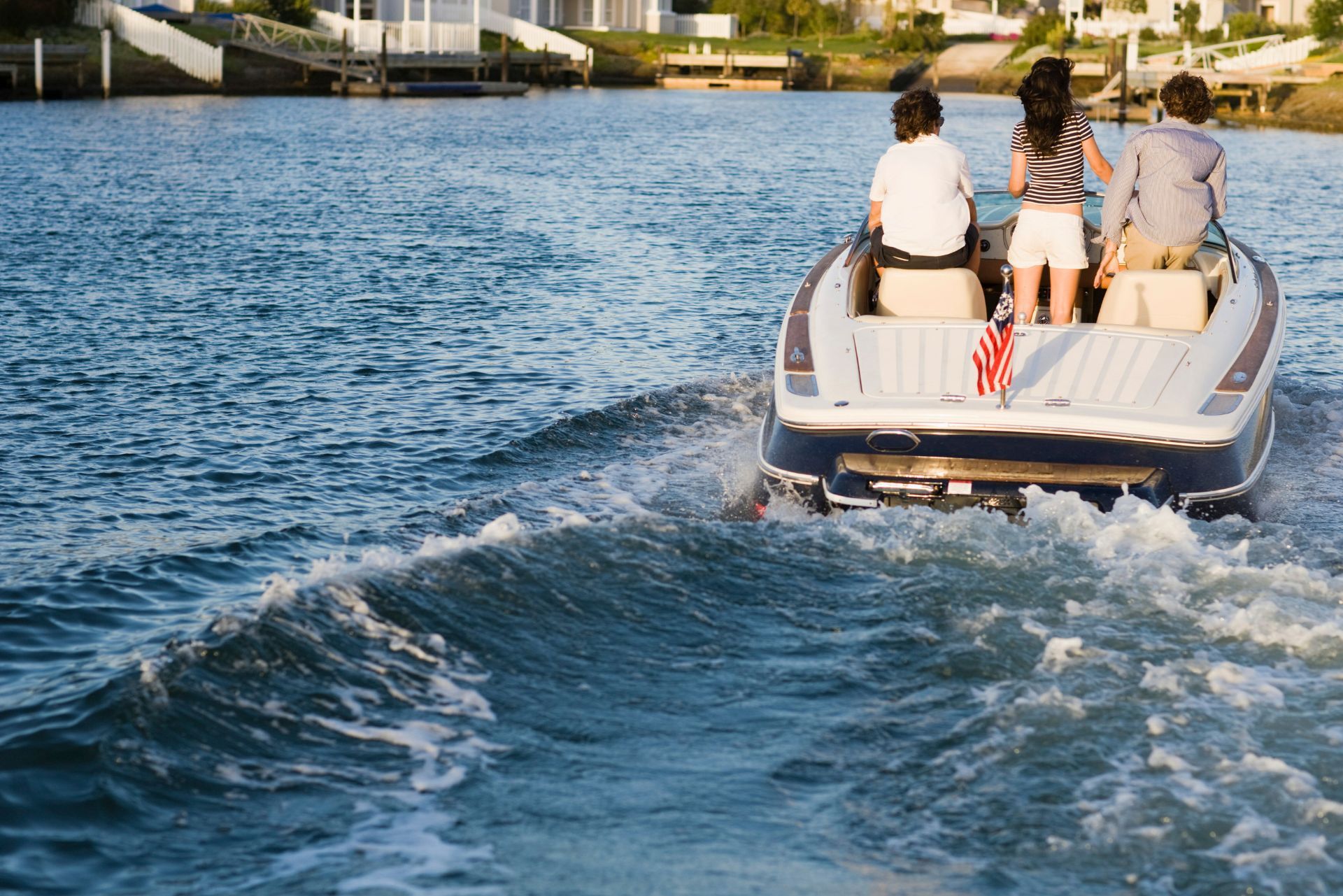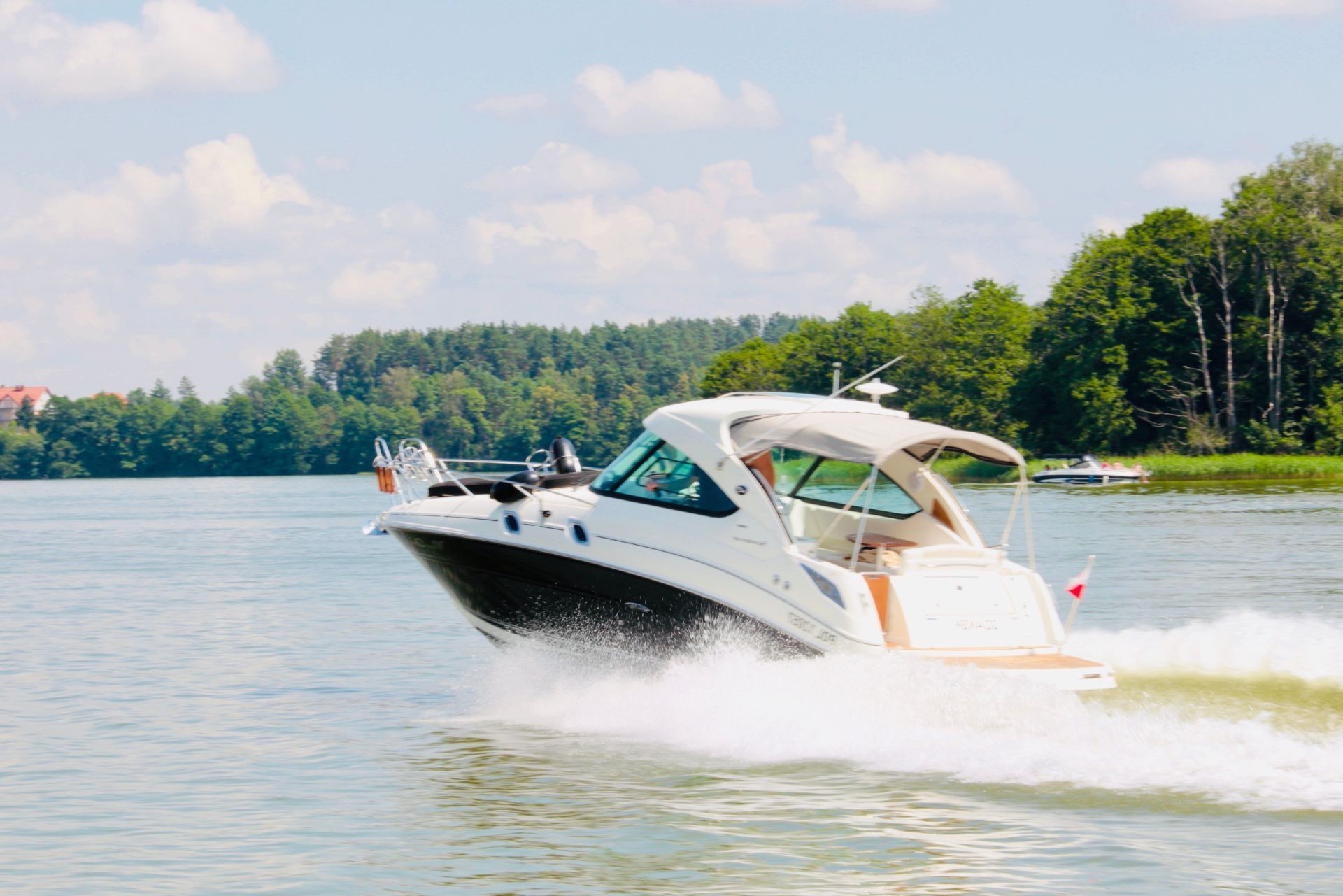Top 3 Recommended Policies
Index
Contact Us
Phone
agency@midwest-insure.com
Location
Northwood, OH
3310 Woodville Road, Suite D
Northwood, OH 43619
Elmore, OH
361 Rice Street
Elmore, OH 43416
Owning a boat in Ohio can be a thrilling experience, offering countless opportunities for recreation and adventure. However, like any other valuable asset, it is crucial to protect your investment with the right insurance. Ohio
boat insurance can provide peace of mind, ensuring that you are covered in case of accidents, theft, or other unforeseen events. This article will explore everything you need to know about boat insurance in Ohio, from types of coverage to
legal requirements and tips for choosing the right policy.
Understanding Boat Insurance
Boat insurance is designed to protect boat owners from financial loss due to various risks associated with owning and operating a boat. It is similar to auto insurance in that it provides coverage for damages to the boat itself, liability for injuries or damages caused to others, and other specific risks related to boating. As boating becomes increasingly popular, understanding the nuances of boat insurance is essential for both new and experienced boaters alike. With the right coverage, you can enjoy peace of mind while navigating the waters, knowing that you are protected against unforeseen incidents.
Types of Coverage
When considering boat insurance, it's essential to understand the different types of coverage available. The most common types include:
- Liability Coverage: This is the most basic form of coverage, protecting you from financial loss if you are found responsible for an accident that injures someone else or damages their property. It’s crucial for maintaining financial stability in the event of a lawsuit or claim against you.
- Collision Coverage: This covers damages to your boat resulting from a collision with another vessel or object, regardless of who is at fault. This type of coverage is particularly important for those who frequently navigate busy waterways or engage in high-speed boating activities.
- Comprehensive Coverage: This type of coverage protects against non-collision-related incidents, such as theft, vandalism, or damage from natural disasters. Given the unpredictable nature of weather and the potential for theft in marinas, comprehensive coverage can be a wise investment.
- Medical Payments Coverage: This provides coverage for medical expenses incurred by you or your passengers in the event of an accident, regardless of fault. This coverage can alleviate the financial burden of medical bills, allowing everyone on board to focus on recovery.
- Uninsured/Underinsured Boater Coverage: This protects you if you are involved in an accident with a boater who does not have adequate insurance. With many boaters operating without sufficient coverage, this type of protection can be invaluable.
Factors Influencing Insurance Costs
The cost of boat insurance can vary significantly based on several factors. Understanding these factors can help you find the best policy for your needs and budget:
- Type of Boat: The make, model, and age of your boat can affect your premiums. Generally, newer and more expensive boats will incur higher insurance costs. Additionally, certain types of boats, such as high-performance speedboats or luxury yachts, may attract higher rates due to their increased risk profiles.
- Usage: How often and where you use your boat can influence your rates. Frequent use or boating in high-risk areas may lead to higher premiums. For instance, if you regularly navigate through busy harbors or engage in activities like water skiing, insurers may consider you a higher risk.
- Experience: Your boating experience and safety record can impact your insurance costs. Experienced boaters may qualify for discounts. Many insurance companies offer incentives for completing safety courses or having a clean boating history, which can significantly lower your premiums.
In addition to these factors, the location where you store your boat can also play a role in determining your insurance costs. Boats kept in secure, monitored marinas may have lower premiums compared to those stored in unsecured locations. Furthermore, the time of year can influence rates, as many insurers adjust premiums based on seasonal boating activity. Understanding these nuances can empower you to make informed decisions about your boat insurance policy.
Legal Requirements for Boat Insurance in Ohio
In Ohio, boat insurance is not legally required for all boat owners. However, having insurance is highly recommended to protect against potential liabilities. Certain types of vessels, such as those used for commercial purposes, may have specific insurance requirements.
Registration and Documentation
All motorized boats in Ohio must be registered with the Ohio Department of Natural Resources (ODNR). While insurance is not a prerequisite for registration, proof of insurance may be required if you are financing your boat or if you are part of a marina or yacht club that mandates coverage. Additionally, it is important to keep your registration updated, as failure to do so can result in fines or legal complications. The registration process typically involves providing details about the boat, such as its make, model, and hull identification number, as well as paying a registration fee based on the length of the vessel.
Liability Considerations
Even though insurance is not mandatory for all boat owners, having liability coverage is crucial. In the event of an accident, you could be held liable for damages or injuries, which can lead to significant financial consequences. Liability coverage can help protect your assets and provide peace of mind while enjoying your time on the water. Furthermore, Ohio law stipulates that boaters must adhere to certain safety regulations, and failure to comply can also lead to liability issues. This includes ensuring that all passengers are wearing life jackets and that the vessel is equipped with necessary safety equipment. Understanding these regulations not only enhances safety but also minimizes the risk of legal repercussions should an incident occur.

Choosing the Right Boat Insurance Policy
Selecting the right boat insurance policy involves careful consideration of your needs, budget, and the specific risks associated with your boating activities. Here are some tips to help you make an informed decision:
Assess Your Needs
Before shopping for insurance, take the time to assess your needs. Consider factors such as:
- The type and value of your boat
- Your boating habits and frequency of use
- Your experience level and safety record
Understanding these aspects will help you determine the type and amount of coverage you require. For instance, if you own a high-performance speedboat, you may need specialized coverage that accounts for the increased risk of accidents. Conversely, if you have a small sailboat that you use infrequently, a basic policy might suffice. Additionally, think about where you typically boat; different regions may have unique risks, such as higher chances of storms or theft, which could influence your insurance needs.
Compare Quotes
Once you have a clear understanding of your needs, it's time to shop around. Obtain quotes from multiple insurance providers to compare coverage options and premiums. Look for policies that offer the coverage you need at a competitive price. It's also wise to consider the reputation of the insurance company. Research customer reviews and ratings to gauge their reliability and customer service. A slightly higher premium might be worth it if it means you’ll receive better support when you need to file a claim.
Read the Fine Print
Before committing to a policy, carefully read the terms and conditions. Pay attention to exclusions, coverage limits, and deductibles. Understanding the fine print can prevent surprises when it comes time to file a claim. Additionally, inquire about any optional coverages that might be beneficial for your situation, such as coverage for personal belongings on board or protection against environmental damage. Some policies may also offer roadside assistance for your trailer, which can be invaluable in case of breakdowns during transport.
Common Exclusions in Boat Insurance Policies
While boat insurance can provide extensive coverage, it's important to be aware of common exclusions that may apply. Knowing what is not covered can help you make informed decisions about additional coverage options. Understanding these exclusions is crucial for boat owners, as it allows them to avoid unexpected financial burdens in the event of an incident. Many boaters may assume that their insurance covers everything related to their vessel, but a closer look at the policy is essential to ensure adequate protection.
Typical Exclusions
Some common exclusions in boat insurance policies include:
- Wear and Tear: Most policies do not cover damages resulting from normal wear and tear or lack of maintenance. This means that routine issues like fraying sails or corroded fittings may not be eligible for reimbursement, emphasizing the importance of regular upkeep.
- Intentional Damage: Any damages caused intentionally or through reckless behavior are typically excluded from coverage. This exclusion serves as a reminder for boaters to practice safe and responsible boating to avoid potential liabilities.
- Operating Under the Influence: If you are involved in an accident while under the influence of drugs or alcohol, your claim may be denied. This exclusion not only protects insurance companies but also promotes safety on the water, as operating a boat under the influence can lead to serious accidents and legal consequences.
Additional Coverage Options
To fill in the gaps left by standard policies, consider additional coverage options that may be beneficial:
- Personal Effects Coverage: This covers personal belongings on your boat, such as fishing gear or electronics, in case of theft or damage. Given the investment many boaters make in their equipment, this coverage can provide peace of mind, especially for those who frequently travel with valuable items.
- Trailer Coverage: If you transport your boat on a trailer, consider coverage for damages to the trailer itself. Accidents can happen on the road, and having this additional coverage can save you from hefty repair costs.
- Emergency Assistance: Some policies offer roadside assistance for towing and emergency services while on the water. This can be invaluable for boaters who venture into remote areas, ensuring that help is just a call away in case of engine failure or other emergencies.
Moreover, it’s essential to review your policy regularly, as your needs may change over time. Factors such as the age of your boat, the frequency of use, and the types of activities you engage in can all influence the level of coverage you require. Additionally, some insurers may offer specialized policies tailored for specific boating activities, such as fishing or sailing, which could provide more comprehensive protection suited to your lifestyle. Always consult with your insurance agent to explore all available options and ensure that your coverage aligns with your boating habits and the risks you may face on the water.

Filing a Claim: What to Expect
In the unfortunate event of an accident or damage to your boat, knowing how to file a claim can make the process smoother. Here’s what to expect:
Steps to File a Claim
1. **Report the Incident:** Notify your insurance provider as soon as possible after the incident. Provide them with details about what happened, including any injuries or damages.
2. **Gather Documentation:** Collect all relevant documentation, including photos of the damage, police reports (if applicable), and witness statements. This information will support your claim.
3. **Complete the Claim Form:** Your insurance company will provide a claim form that you need to fill out. Ensure that all information is accurate and complete to avoid delays.
What Happens Next?
Once your claim is submitted, the insurance company will review the information and may send an adjuster to assess the damage. Depending on the complexity of the claim, this process can take anywhere from a few days to several weeks. Stay in communication with your insurer for updates on your claim status.
During this waiting period, it’s important to keep a detailed record of all communications with your insurance company. Note the names of the representatives you speak with, the dates of your conversations, and any promises made regarding your claim. This documentation can be invaluable if there are any disputes or delays in processing your claim. Additionally, consider reaching out to your local boating community or forums for advice and support; many boaters have navigated similar situations and can offer insights based on their experiences.
If your claim is approved, the next step typically involves the insurance company providing you with a settlement offer. This offer will detail the amount they are willing to pay for repairs or replacements. It’s essential to review this offer carefully and, if necessary, consult with a marine surveyor or a legal expert to ensure that the settlement adequately covers your losses. Remember, you have the right to negotiate if you feel the initial offer does not reflect the true extent of your damages or losses.
Tips for Reducing Boat Insurance Premiums
Take a Boating Safety Course
Completing a boating safety course can demonstrate your commitment to safe boating practices. Many insurance companies offer discounts for certified boaters, which can lead to lower premiums.
Bundle Your Insurance Policies
If you have multiple insurance policies, such as auto or home insurance, consider bundling them with the same provider. Many insurers offer discounts for bundling, which can significantly reduce your overall costs.
Increase Your Deductible
Choosing a higher deductible can lower your premium. However, ensure that you can comfortably afford the deductible amount in case of a claim. Balancing your deductible with your premium is key to finding the right fit for your budget.
Conclusion
Ohio boat insurance is an essential aspect of responsible boat ownership. By understanding the types of coverage available, legal requirements, and tips for selecting the right policy, boat owners can protect their investments and enjoy their time on the water with confidence. Whether you are a seasoned boater or a newcomer to the boating world, having the right insurance can make all the difference in ensuring a safe and enjoyable experience.
As you navigate the waters of boat ownership, remember to regularly review your insurance policy and make adjustments as needed. Staying informed about your coverage and any changes in your boating habits will help you maintain adequate protection for your vessel.
Ultimately, investing time in understanding Ohio boat insurance is a small price to pay for the peace of mind that comes with knowing you are covered in case of unexpected events. Happy boating!




